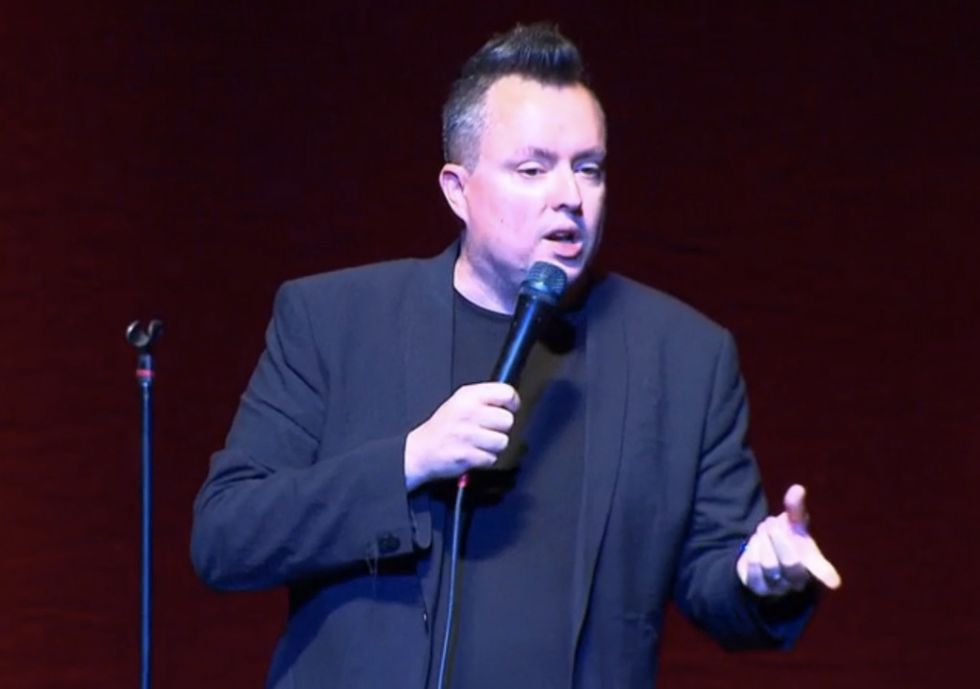
cbc news

Onstage at the Just for Laugh's festival in Montreal, comedian Mike Ward shared how he found out Quebec's Human Rights Tribunal was suing him for a joke they deemed offensive.
"One day the caller ID read: Human Rights Tribunal," he said, according to CBC News. "When I answered, the woman said, 'Mr. Ward, we're calling you about one of your jokes. We think you know the one.'"

Ward told the crowd Wednesday he didn't even know such a governmental agency existed "until I got sued," CBC News reported.
The target of Ward's jab? Jeremy Gabriel, a singer with a genetic disability, who gained fame in the province when he was 10 after being flown to Rome to sing for the Pope in 2006.

Ward's jokes about Gabriel began in 2010 with his take on "petit Jeremy," CBC News said. He called Gabriel a bad singer but that it was okay because he was dying, according to a CTV News report, and performed the bit 230 times over a 3-year period.
Gabriel has Treacher Collins syndrome, which affects development of bones and facial tissues and isn't fatal if properly managed, CTV added.
The Human Rights Tribunal ruled Ward's jokes violated Gabriel's rights and ordered him to pay Gabriel $35,000 — $25,000 in moral damages and $10,000 in punitive damages, CBC News reported.
He also must pay Sylvie Gabriel, Jeremy's mother, $5,000 for moral damages and $2,000 for punitive damages, CBC News added.
A complaint about Ward was lodged with the Human Rights Tribunal in 2012.
More from CBC News:
The plaintiff argued the jokes gravely affected Gabriel's dignity.During the case, Gabriel's lawyer Marie Dominique argued that there is a difference between making fun of a public figure and making fun of a child with a disability.
Dominique said Ward's jokes reinforced stereotypes of people with disabilities, adding that the jokes hurt the boy's confidence, his career and led to bullying in school.
The judge, Scott Hughes, concluded the jokes went beyond being an exercise in freedom of expression.
"The discrimination that Jeremy fell victim to is unjustifiable," Hughes said in his judgment released late Wednesday, CBC News said.
But Ward's lawyer, Julius Grey, argued that his client was exercising freedom of expression and was operating within the comedic norms. Grey said the ruling will be appealed.
"I'm in total disagreement with the decision and I've already received the mandate to appeal it," Grey told CBC News. "I'm in such disagreement with the judgment that I couldn't even take it apart in bits and pieces. The whole judgment needs to be taken to appeal."
The founder of the Just for Laughs festival, Gilbert Rozon, told CBC News he gets scared when laws affect freedom of expression.
"I think freedom of expression — like the assumption of innocence — is something we've worked hard for over many centuries," Rozon said after the Human Rights Tribunal ruling. "I'm always worried when we get too involved in it, putting down rules, laws, over what we can and cannot say. It always gives me a certain fear."
Here's a clip of Ward talking about the ruling:
Dave Urbanski
Sr. Editor, News